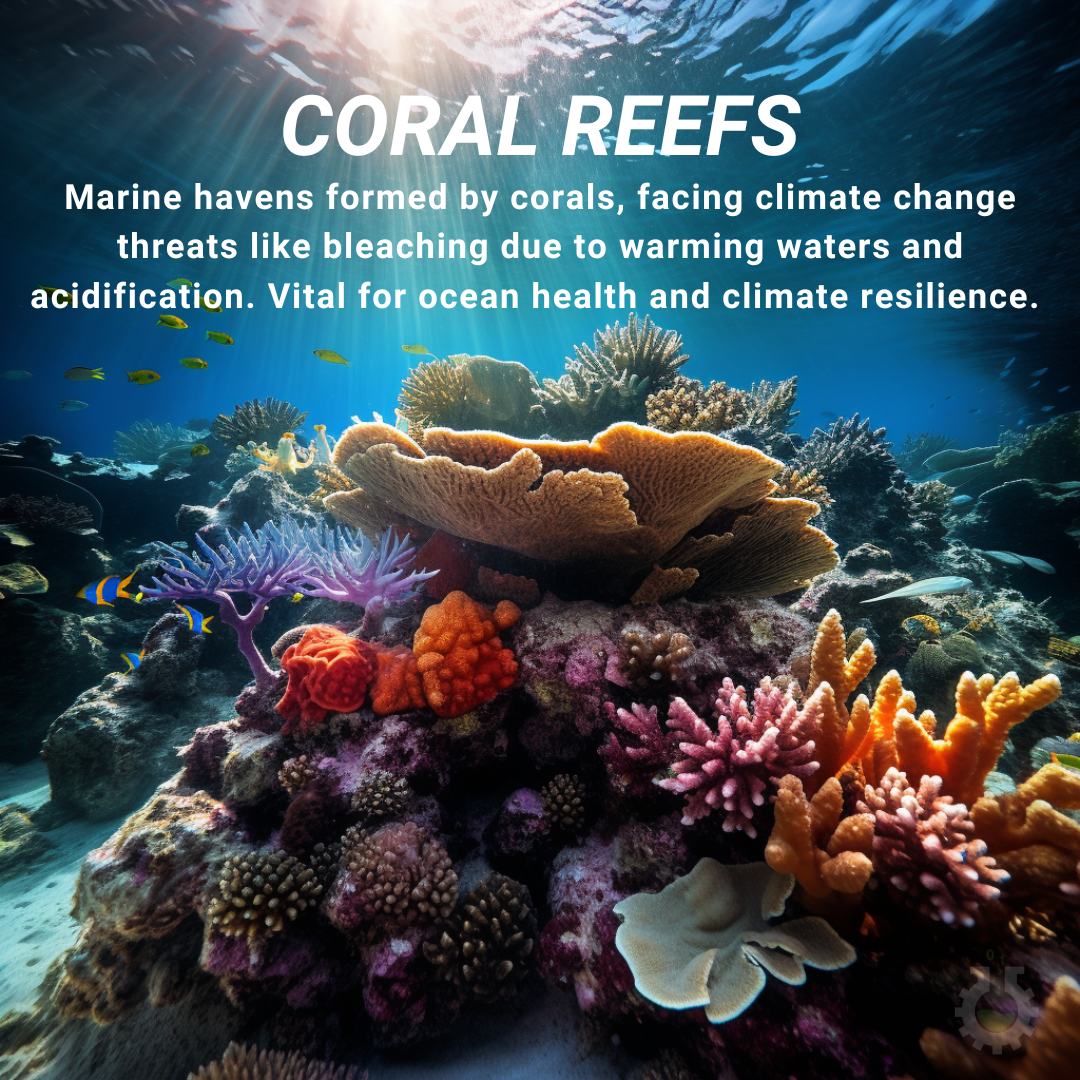September 7, 2023
Climate Change Poster Collection of the Day – Coral Reefs
Book a Demo
Today’s Climate Change Poster Collection highlights Coral reefs, often referred to as the “rainforests of the sea”, are among the most diverse and valuable ecosystems on our planet. These underwater ecosystems host a multitude of species, playing a pivotal role in ocean biodiversity. Besides their ecological importance, they also have a profound impact on human livelihood, providing food, coastal protection, and income from tourism and fisheries to many communities. However, these crucial marine habitats are under increasing threat from the impacts of climate change.
One of the most visible impacts of climate change on coral reefs has been coral bleaching. This phenomenon occurs when corals, stressed by changes in conditions such as temperature, light, or nutrients, expel the symbiotic algae living in their tissues, causing them to turn white. Large areas of coral in the Great Barrier Reef, one of the world’s most iconic coral reef systems, have already succumbed to this fate.
Another detrimental impact of climate change on coral reefs is ocean acidification. This is a direct result of higher levels of atmospheric CO2, which when absorbed by the ocean, increases the water’s acidity. This altered environment is particularly damaging to coral reefs and other marine organisms, as it makes it harder for them to build their skeletons and shells, which are made from calcium carbonate.
Climate change is also manifesting in more frequent and intense storms, which cause physical damage to coral reefs. These severe weather events, coupled with rising sea levels – another consequence of climate change, can negatively impact the growth and health of shallow coral reefs. The implications of coral reef loss are far-reaching, not just for the marine species that call them home, but also for the human populations that depend on them.
Recognizing the urgency of the situation, the International Union for Conservation of Nature (IUCN) has proposed several strategies to conserve these invaluable ecosystems. These include reducing greenhouse gas emissions, which is the main driver of climate change, implementing sustainable fishing practices to preserve marine biodiversity, reducing pollution to improve water quality, and actively protecting and restoring coral reefs.
The survival of these precious ‘rainforests of the sea’ and the species they support is hanging in the balance. It is crucial that we heed the recommendations of bodies like the IUCN and take collective action against climate change, for the sake of our coral reefs, our oceans, and ultimately, our planet.
Discover an inspiring collection of climate change posters.



